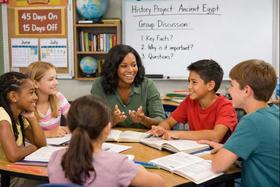For the 2026 school year, there are 8 public elementary schools serving 3,933 students in 98597, WA.
The top-ranked public elementary schools in 98597, WA are Mill Pond Elementary School, Mckenna Elementary School and Yelm Prairie Elementary School. Overall testing rank is based on a school's combined math and reading proficiency test score ranking.
Public elementary schools in zipcode 98597 have an average math proficiency score of 44% (versus the Washington public elementary school average of 43%), and reading proficiency score of 48% (versus the 51% statewide average). Elementary schools in 98597, WA have an average ranking of 6/10, which is in the top 50% of Washington public elementary schools.
Minority enrollment is 39% of the student body (majority Hispanic), which is less than the Washington public elementary school average of 52% (majority Hispanic).
Best 98597, WA Public Elementary Schools (2026)
School
(Math and Reading Proficiency)
(Math and Reading Proficiency)
Location
Quick Facts
Rank: #11.
Mill Pond Elementary School
(Math: 60-64% | Reading: 55-59%)
Rank:
Rank:
8/
Top 30%10
909 Mill Rd. Se
Yelm, WA 98597
(360) 458-3400
Yelm, WA 98597
(360) 458-3400
Gr: PK-5 | 397 students Student-teacher ratio: 16:1 Minority enrollment: 38%
Rank: #22.
Mckenna Elementary School
(Math: 55-59% | Reading: 55-59%)
Rank:
Rank:
8/
Top 30%10
35120 Sr 507 Se
Yelm, WA 98597
(360) 458-2400
Yelm, WA 98597
(360) 458-2400
Gr: PK-5 | 387 students Student-teacher ratio: 16:1 Minority enrollment: 36%
Rank: #33.
Yelm Prairie Elementary School
(Math: 51% | Reading: 43%)
Rank:
Rank:
6/
Top 50%10
16535 110th Ave. Se
Yelm, WA 98597
(360) 458-6261
Yelm, WA 98597
(360) 458-6261
Gr: PK-5 | 438 students Student-teacher ratio: 17:1 Minority enrollment: 34%
Rank: #44.
Southworth Elementary School
(Math: 42% | Reading: 49%)
Rank:
Rank:
6/
Top 50%10
13849 Yelm Hwy Se
Yelm, WA 98597
(360) 458-2500
Yelm, WA 98597
(360) 458-2500
Gr: PK-5 | 669 students Student-teacher ratio: 18:1 Minority enrollment: 45%
Rank: #55.
Fort Stevens Elementary School
(Math: 47% | Reading: 43%)
Rank:
Rank:
5/
Bottom 50%10
16525 100th Way Se
Yelm, WA 98597
(360) 458-4800
Yelm, WA 98597
(360) 458-4800
Gr: PK-5 | 491 students Student-teacher ratio: 15:1 Minority enrollment: 41%
Rank: #66.
Ridgeline Middle School
(Math: 39% | Reading: 49%)
Rank:
Rank:
5/
Bottom 50%10
10605 Carter St Se
Yelm, WA 98597
(360) 458-1100
Yelm, WA 98597
(360) 458-1100
Gr: 6-8 | 578 students Student-teacher ratio: 17:1 Minority enrollment: 37%
Rank: #77.
Yelm Middle School
(Math: 38% | Reading: 46%)
Rank:
Rank:
5/
Bottom 50%10
402 Yelm Ave. W
Yelm, WA 98597
(360) 458-3600
Yelm, WA 98597
(360) 458-3600
Gr: 6-8 | 683 students Student-teacher ratio: 20:1 Minority enrollment: 40%
Rank: #88.
Lackamas Elementary School
(Math: 40-44% | Reading: 35-39%)
Rank:
Rank:
4/
Bottom 50%10
16240 Bald Hill Rd
Yelm, WA 98597
(360) 894-6000
Yelm, WA 98597
(360) 894-6000
Gr: PK-5 | 290 students Student-teacher ratio: 14:1 Minority enrollment: 33%
Frequently Asked Questions
What are the top-ranked public elementary schools in 98597, WA?
The top-ranked public elementary schools in 98597, WA include Mill Pond Elementary School, Mckenna Elementary School and Yelm Prairie Elementary School.
How many public elementary schools are located in 98597?
8 public elementary schools are located in 98597.
What is the racial composition of students in 98597?
98597 public elementary schools minority enrollment is 39% of the student body (majority Hispanic), which is less than the Washington public elementary schools average of 52% (majority Hispanic).
Recent Articles

Year-Round Schooling in 2026: Updated Parent Guide
Explore the latest 2026 data, trends, costs, and parent planning tips in the ongoing debate over year-round schooling vs the traditional calendar.

No Child Left Behind: Past, Present, and Future of U.S. School Policy
Explore how No Child Left Behind evolved into ESSA, what it means for 2025‑26 schooling, and what parents need to know about testing, admissions planning, and funding.

Understanding Public School Fees & Optional Costs Guide
Discover what public school fees are required versus optional, with 2026 updates for parents, students, and educators on budgeting and planning.
